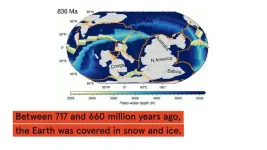(Press-News.org) DETROIT– A team of researchers from Wayne State University was awarded a $1.4 million, three-year grant from the U.S. Department of Defense for the study, “Cytochrome c acetylation drives prostate cancer aggressiveness and Warburg effect.”
The study, led by Maik Hüttemann, Ph.D., professor of molecular medicine and genetics, and biochemistry, microbiology and immunology at Wayne State University’s School of Medicine, aims to establish the role of the protein cytochrome c, which the team proposes is central in two hallmarks of cancer: switching from aerobic to glycolytic metabolism – also known as the Warburg effect – and evasion of apoptosis.
According to the National Cancer Institute of the National Institutes of Health, in 2023 it was estimated that more than 288,000 men would be diagnosed with prostate cancer and 34,700 would die in the United States, making it the second most common cancer in men. In the past decade, diagnoses of prostate cancer increased from 3.9% to 8.2%, with African American men having the highest incidence and mortality rates of the disease compared to white, Hispanic and Asian men. Cytochrome c was previously suggested to be a molecular determinant of prostate cancer health disparities, and this study will further explore this hypothesis.
The research team proposes that cytochrome c transitions from a non-acetylated form in a normal prostate to a K53-acetylated cytochrome c in cancer.
“What we are proposing is that this transition causes switching from aerobic metabolism to Warburg metabolism because the modification renders cytochrome c less effective in transferring electrons in the electron transport chain, and at the same time making it incapable of triggering apoptosis,” said Hüttemann. “Warburg and evasion of apoptosis are two key features of cancer cells. This funding from the Department of Defense will allow us to develop an antibody as a prognostic and diagnostic tool and to mechanistically study the pathways leading to acetylation of cytochrome c, with the ultimate goal of identifying novel therapeutic targets that could result in developing a drug to overcome treatment resistance as a stand-alone or combination therapy.”
“This important funding from the U.S. Department of Defense supports high-impact research needed to advance our understanding of how to detect and treat prostate cancer,” said Ezemenari M. Obasi, Ph.D., vice president for research at Wayne State University. “The work that Dr. Hüttemann and his collaborators are doing will improve health equity and reduce disparities in prostate cancer and may ultimately enhance the quality and length of life for those impacted by prostate cancer.”
Collaborators on this project include Izabela Podgorski, Ph.D., professor of pharmacology, Wayne State University School of Medicine; Elisabeth Heath, M.D., associate director, Department of Oncology, Wayne State University School of Medicine; Seongho Kim, Ph.D., professor of oncology, Wayne State University School of Medicine; and Dongping Shi, M.D., chief and medical director, Detroit Medical Center Sinai-Grace Hospital.
The grant number for this U.S. Department of Defense grant is HT94252410073.
###
About Wayne State University
Wayne State University is one of the nation’s pre-eminent public research universities in an urban setting. Through its multidisciplinary approach to research and education, and its ongoing collaboration with government, industry and other institutions, the university seeks to enhance economic growth and improve the quality of life in the city of Detroit, state of Michigan and throughout the world. For more information about research at Wayne State University, visit research.wayne.edu.
END
Wayne State University awarded $1.4 million from Department of Defense to expand on research findings surrounding prostate cancer
2024-02-08
ELSE PRESS RELEASES FROM THIS DATE:
What turned Earth into a giant snowball 700m years ago? Scientists now have an answer
2024-02-08
Australian geologists have used plate tectonic modelling to determine what most likely caused an extreme ice-age climate in Earth’s history, more than 700 million years ago.
The study, published in Geology, helps our understanding of the functioning of the Earth's built-in thermostat that prevents the Earth from getting stuck in overheating mode. It also shows how sensitive global climate is to atmospheric carbon concentration.
“Imagine the Earth almost completely frozen over,” said the study’s lead author, ARC Future Fellow ...
Researchers estimate survival chances during CPR for cardiac arrest
2024-02-08
A person’s chance of surviving while receiving cardiopulmonary resuscitation (CPR) for cardiac arrest in hospital declines rapidly from 22% after one minute to less than 1% after 39 minutes, finds a US study published by The BMJ today.
Similarly, the likelihood of leaving hospital with no major brain damage declines from 15% after one minute of CPR to less than 1% after 32 minutes with no heartbeat.
The researchers say the findings provide insights that may help guide hospital teams, patients and their families in deciding how long to continue resuscitation.
In-hospital ...
Group rehabilitation improves quality of life for people with long covid
2024-02-08
An online programme of physical and mental health rehabilitation can improve quality of life for adults with long covid, finds a trial published by The BMJ today.
The eight week REGAIN programme, delivered in online group sessions, led to sustained improvements in fatigue, pain, and depression compared with usual care.
The researchers say this accessible, resource-efficient programme can be delivered at scale and will assist clinicians in the treatment of this complex condition.
Post-covid-19 condition (commonly known as long covid) ...
Anxiety of headteachers across England “substantially increased” during the pandemic
2024-02-08
The anxiety of headteachers across England increased “substantially” throughout the pandemic, finds the largest study of its type to-date.
The results of the research, which examined thousands of teachers’ anxiety about work at 75 touchpoints from October 2019 to July 2022, show that senior leaders in schools suffered – even “much more” when compared with junior colleagues.
The findings, published today in the peer-reviewed journal Educational Review, are the latest to demonstrate the mental ...
UTHealth Houston report in NEJM: Deadly fungal infection acquired during surgery in Mexico led to death and brainstem, blood supply injuries
2024-02-08
A life-threatening mold infection known as health care-associated Fusarium solani meningitis can be associated with a delayed, but devastating, injury to the brainstem and its blood supply among those infected, according to physicians from UTHealth Houston.
A report, led by first author Nora Strong, MD, and senior author Luis Ostrosky-Zeichner, MD, was published today in the New England Journal of Medicine. Strong is a second-year postdoctoral fellow in infectious diseases with McGovern Medical ...
Reducing harmful health screenings and overtreatment in older adults
2024-02-08
Study effectively reduced doctors’ actions for overused tests and treatment
Routine testing for prostate cancer, urinary tract infections and blood sugar can result in unnecessary care and serious health problems
Practices stubbornly persist despite lack of evidence
CHICAGO --- When a doctor ordered a routine prostate screening for an 80-year-old man — as doctors often do — a dramatic yellow alert popped up on the electronic health record with dire warnings.
It flashed: “You are ordering a test that no guideline ...
Pregnant women should avoid ultraprocessed, fast foods
2024-02-07
If you’re pregnant, you may want to think twice before making a hamburger run or reaching for a prepackaged pastry, according to research published last month in the journal Environmental International.
Oddly enough it’s not the food that the report targets — not the fries, burgers or even the shakes and cakes — but what touches the food before you eat it.
Research shows that phthalates, a class of chemicals associated with plastics, can shed from the wrapping, packaging and even from plastic gloves worn by food handlers into food. Once consumed during pregnancy, the chemicals can get into the bloodstream, through ...
University of Houston researcher part of $5 million DOD grant to support defense manufacturing
2024-02-07
The U.S. Department of Defense (DoD) awarded a $5 million grant to the University of Texas Rio Grande Valley (UTRGV)-led America’s Additive Foundry Consortium, which includes the University of Houston as a key partner. This is one of six grants – totaling about $30 million – to help enhance national security through community investments.
The funding will enable the consortium to undertake a $7.5 million project designed to ensure that the U.S. military has a stable supply of domestically produced, high-quality tactical alloys critical for national defense. The ...
Researchers measure and control interactions between magnetic ripples using lasers
2024-02-07
One vision for the future of computing involves using ripples in magnetic fields — called magnons — as a basic mechanism. In this application, magnons would be comparable to electricity as the basis for electronics.
In conventional digital technologies, such magnonic systems are expected to be far faster than today’s technologies, from laptops and smartphones to telecommunications. In quantum computing, the advantages of magnonics could include not only quicker speeds but also more stable devices.
A recent study in the journal Nature Physics reports an early-stage discovery along the path ...
Africa could grow more rice -- new study shows how
2024-02-07
Africa’s rice sector has major opportunities to increase its yield gains through improved agronomic practices while avoiding massive land conversion, a study by international scientists including a Husker co-investigator finds. The production advances can be important in meeting Africa’s projected food needs and reducing dependence on imports, the researchers concluded.
Rice demand in Africa is projected to more than double over the next 25 years due to population growth and increased rice consumption. At present, Africa imports nearly 40% of its rice.
“Nearly 15 million hectares of rice are waiting for yield improvement in Africa, ...






